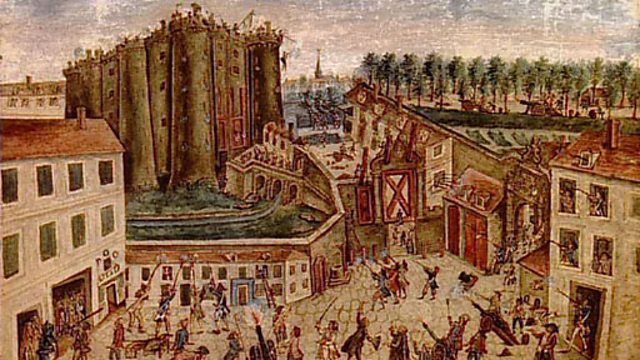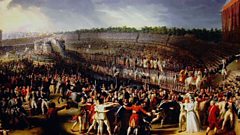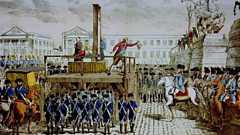
The Bastille in Revolutionary France
A dark description of life in the Bastille prison of Paris begins this short piece. The testimony is read from the memoirs of Jean Jacques Calet in 1800, a prisoner who was kept in solitary confinement and was never taken to trial. He was never to see his wife and child again. They were forced to beg on the streets and they died before he gained his release. There is also a good introduction to the role and extent of power exerted by the King in France. As such, stories like that of Calet served to stir public emotion against the King and the Bastille became a symbol of their oppression and inequality - the early seeds of Revolution that came to fruition on 14 July 1789 were sown.
Duration:
This clip is from
More clips from The French Revolution
-
![]()
The importance of The Rights Of Man
Duration: 04:26
-
![]()
Opposition to the New Republic
Duration: 04:40
-
![]()
What happened to Louis XVI after the storming of the Bastille?
Duration: 05:21
-
![]()
France in Revolution and the Reign of Terror, 1792-1794
Duration: 03:37
More clips from Curriculum Bites
-
![]()
Creating parody—English
Duration: 02:33
-
![]()
Finishing a draft—English
Duration: 02:32








